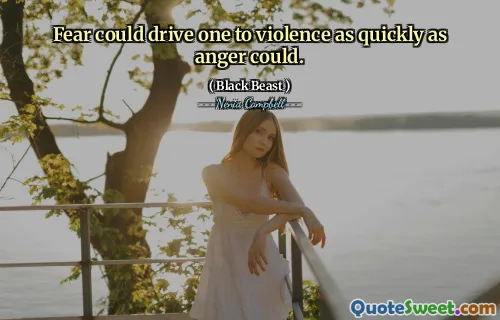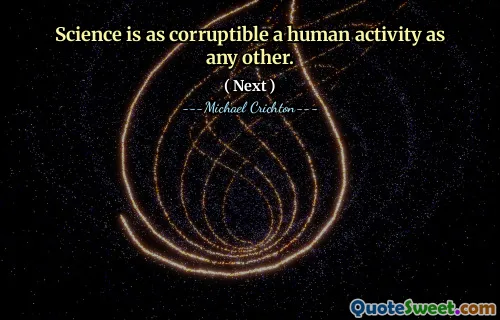
Fear could drive one to violence as quickly as anger could.
This quote resonates deeply with the volatile nature of human emotions and their capacity to impel actions that might seem irrational or extreme. Often, anger is perceived as the primary emotion behind violent behavior, given its explosive and overt expression. However, the quote eloquently highlights fear as an equally potent motivator for violence, bringing a layer of complexity to our understanding of human responses to threat and insecurity.
Fear, unlike anger, can be quieter but no less dangerous. It can build up internally, triggering a fight-or-flight response that might tip toward aggression as a defense mechanism. For example, individuals or groups who feel endangered or perceive existential threats may resort to violence not out of malice but as a desperate bid for self-preservation. This understanding calls for a more empathetic approach when addressing conflict — recognizing that beneath violent outbursts there may be a foundation of fear that requires acknowledgment and compassion.
Moreover, this quote aligns with themes of emotional psychology and conflict resolution. It implies the need for addressing and managing fear effectively to prevent violence. If fear is left unchecked, it can escalate, overshadow reason and empathy, and lead to harmful outcomes equivalent to or worse than those arising from anger.
In the broader sense, the quote challenges us to reflect on societal and individual triggers of violence, urging consideration of the underlying fears that might fuel aggressive actions. Understanding this can promote more effective dialogue, peace-building, and emotional intelligence in both personal and communal settings.


